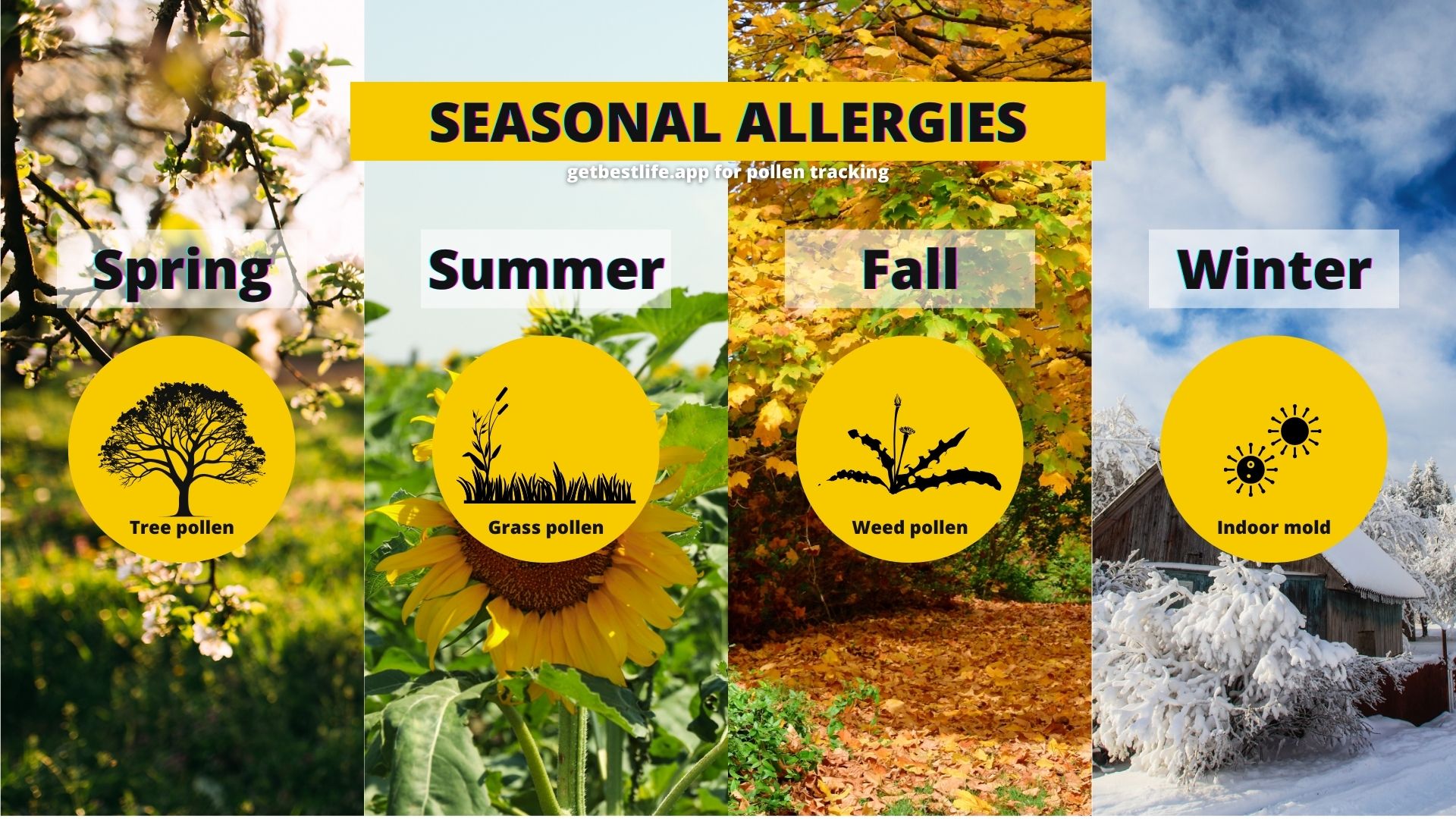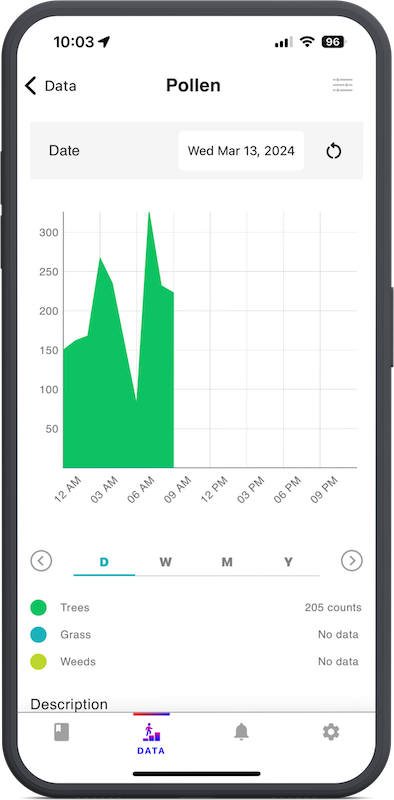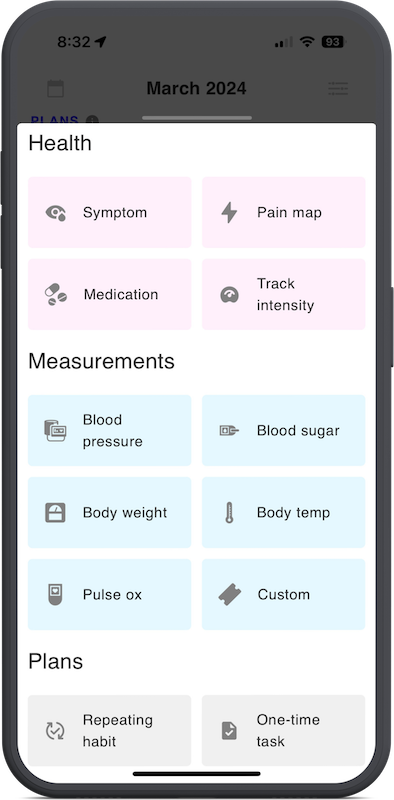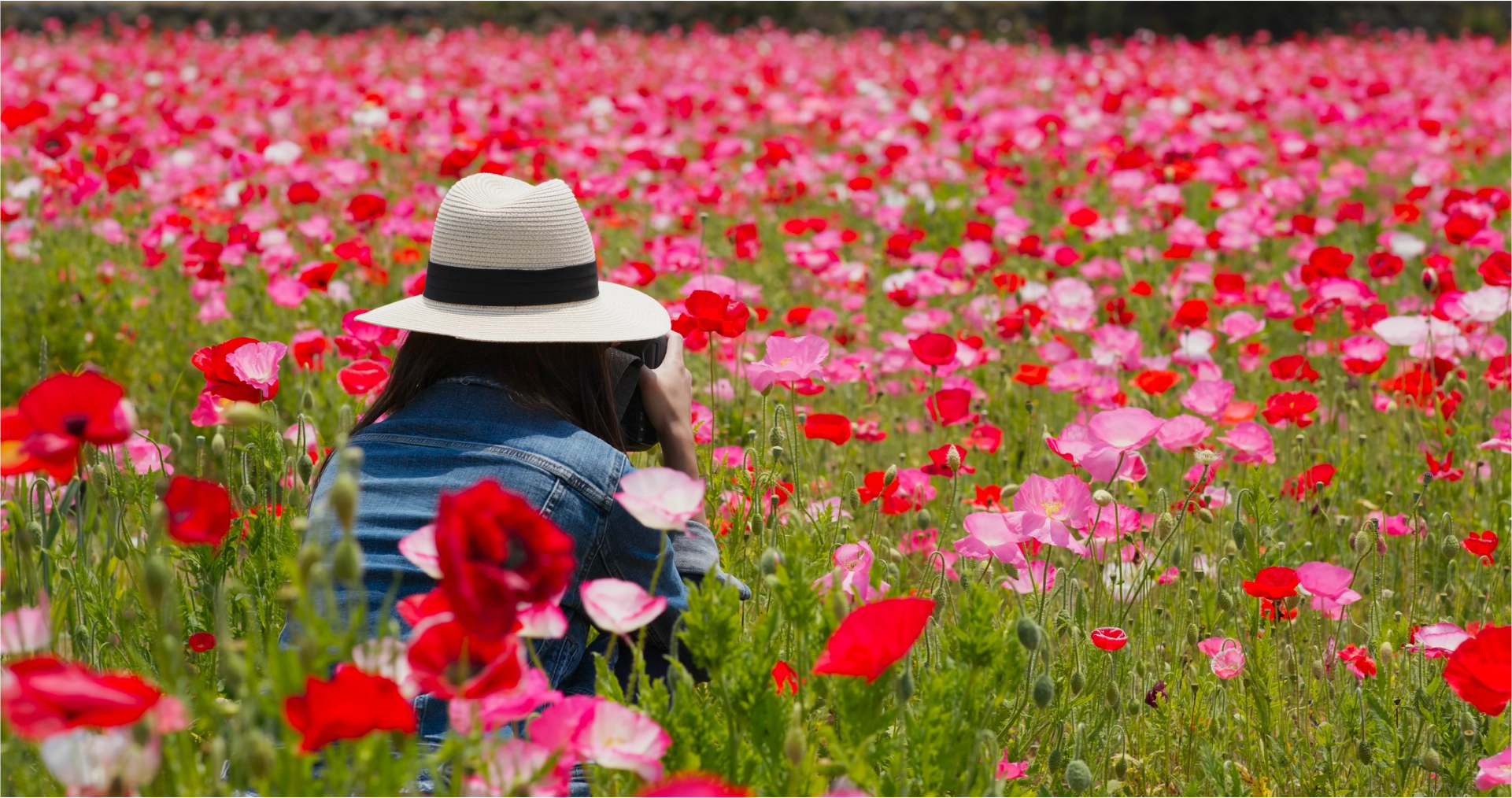Surviving to Thriving With Seasonal Allergies
Welcome to allergy season, a time when the natural world wakes up and some of us wish we could just stay inside. It’s the season of beauty and bloom, but for those with seasonal allergies, it’s also a time for sniffles, sneezes, and searching for relief. While the great outdoors comes to life, those with allergies might find this time challenging. But fear not, because there’s good news!
Best Life, your versatile mobile app, is here to help you tackle allergy season head-on. Imagine having a tool that not only tracks your health and activity but also keeps you one step ahead of those pesky allergy triggers. With features like pollen alerts, symptom logging, and medication reminders, Best Life is your ally in managing your allergies effectively.
Why let allergy season put a damper on your enjoyment of spring? With Best Life, you can gain insights into your symptoms, understand what triggers them, and find the best ways to stay clear of allergies. Join us as we explore how Best Life can make this allergy season manageable, allowing you to enjoy every moment without the worry of allergies holding you back. Let’s embark on this journey together and make the most of the season.
What Are Seasonal Allergies?
Seasonal allergies happen when your body thinks things like pollen from trees, grasses, and weeds are invaders trying to make you sick. Even though pollen is actually harmless, your body doesn’t know that and tries to protect you. This protection makes you sneeze, get a runny nose, or have itchy eyes.
These allergies usually show up at certain times of the year, especially in spring or fall. That’s because this is when plants are flowering and releasing pollen into the air.

Why do some people get these allergies? A big reason is family history. If your family members have allergies, you might get them too. Also, if you’re around a lot of pollen at certain times, your body might start reacting to it.
In the US, Fairbanks Alaska hit its highest-ever recorded pollen levels in 2020 at 7,045 grains per cubic meter. Atlanta, Georgia saw their second-highest pollen count in 2012 at 8.918 grains per cubic meter. That’s wild!
Alaskapublic.org and Fox5atlanta.com
Knowing about seasonal allergies helps you understand why your body acts this way and can help you find ways to feel better when allergy season comes around.
Seasonal Allergies or Common Cold?
Seasonal allergies often cause symptoms that can be easily confused with those of a common cold, such as sneezing, congestion, runny nose, and sore throat. However, there are key differences that can help you tell them apart. For example, allergies usually don’t come with fever or body aches, which can accompany a cold, and allergy symptoms persist as long as you’re exposed to the allergen, whereas cold symptoms typically resolve within 7 to 10 days.
Understanding the Overlap and Differences
The overlap between cold and allergy symptoms can make it tricky to decide on the best course of action. Both can make you feel under the weather, but the approach to managing them differs significantly. Colds are caused by viruses, while allergies are your immune system’s response to allergens.
How Symptom Tracking Can Help
Symptom tracking can be particularly helpful in distinguishing between allergies and colds and managing your health more effectively. Here’s how:
- Duration and Pattern: By logging symptoms daily, you can start to notice patterns. Allergy symptoms might last for weeks or as long as you’re exposed to the allergen, unlike cold symptoms which tend to improve after a week or so.
- Response to Medication: Keeping track of how your symptoms respond to different types of medication (e.g., antihistamines for allergies vs. over-the-counter cold remedies) can also provide clues. If antihistamines relieve your symptoms, it’s likely allergies.
- Time of Year: Logging when you experience symptoms can help you identify if they’re seasonal (like pollen allergies in spring and fall) or if they’re occurring year-round, suggesting other triggers or possibly colds.
- Environmental Factors: Noting where you are and what you’re doing when symptoms flare up can help identify specific allergens or situations that cause your symptoms, something that wouldn’t affect the common cold.
Symptom tracking, therefore, not only aids in distinguishing between a cold and allergies but also empowers you to manage your symptoms more effectively. By understanding what triggers your symptoms and how different treatments affect you, you can tailor your approach to managing your health, leading to better overall wellbeing.
4 Ways Technology Helps With Seasonal Allergies
1. Real-Time Environmental Tracking

Dealing with seasonal allergies can feel like walking through a field full of hidden triggers.
Knowing what’s in the air around you can make a big difference in managing your allergies. Real-time environmental tracking helps you understand the pollen and air quality levels in your area, which is crucial during allergy season.
This kind of tracking tells you about the pollen count and what the air quality is like where you live. When you know there’s a lot of pollen outside, you might choose to stay in or take medicine before you even start feeling bad. On days when the pollen isn’t so bad, you can enjoy being outside more, without worrying too much about allergy symptoms.
Image: Pollen count graph updates in real time within Best Life app
Using this information means you’re not just waiting to react when symptoms hit. Instead, you’re planning ahead to avoid allergens. This not only helps you feel better physically but also gives you a sense of control over your allergies. Knowing when and where allergens are high lets you enjoy spring with fewer allergy worries.
2. Symptom and Medication Logging

Track your symptoms and, if you use them, medications.
Seasonal allergies affect your body by causing an immune response to pollen, leading to inflammation and irritation in areas like your nose, throat, and eyes. This reaction can cause symptoms such as sneezing, coughing, a runny or stuffy nose, itchy or watery eyes, and sometimes fatigue. The immune response is essentially your body’s way of trying to get rid of what it mistakenly thinks is harmful. This process can make you feel uncomfortable or even miserable, especially during high pollen seasons.
If you take medication for your allergies, tracking your allergy medication can be incredibly helpful in figuring out which one works best for you. By keeping a record of each medication you take and noting your symptoms before and after, you can see patterns emerge over time. This method allows you to compare the effectiveness of different medications directly, identifying which ones alleviate your symptoms most effectively and which ones may not be as beneficial.
Image: Best Life app health tracker menu for choosing what to track
When you’re dealing with seasonal allergies, keeping track of how you feel and what you’re doing about it can make a big difference. This is where symptom and medication logging comes in handy. By writing down your symptoms and when you take medication, you can see patterns over time. This helps in a few ways:
- Identifying Triggers: By noting when your symptoms get worse, you might figure out specific triggers. Maybe your allergies act up more on days when the pollen count is high, or when you’re at a particular place.
- Medication Effectiveness: Logging when you take allergy medicine and how it makes you feel afterward can show you if the medication is working. Sometimes, you might need to try a different kind or adjust when you take it.
- Communicating with Doctors: Having a log of your symptoms and medication can be really helpful when you talk to doctors. It gives them a clear picture of what’s going on, which can help them suggest the best treatment for you.
By keeping track of how allergies affect your body and what helps, you take control of your allergies instead of letting them control you. This approach makes managing seasonal allergies more straightforward and less stressful.
Related: See All Best Life’s Features Like Symptom Tracking, Pollen Counts, Nutrition Logs, and More
3. Integrating Health, Activity, and Nutrition Tracking
When it comes to fighting off seasonal allergies, there’s a lot more you can do besides just taking medicine. Keeping your whole body healthy plays a big part in how well you can handle allergies. This includes staying active, eating right, and making sure you’re overall healthy.
A Holistic Approach to Treating Allergies
Think of your body like a team, where every player needs to be in good shape to win the game against allergies. Here’s why each part is important:
- Staying Active: Exercise helps your body stay strong and can even help with your breathing. When your body is fit, it can handle allergies better. But, remember to pick the best times to exercise outdoors when pollen levels are low, or choose indoor activities when they’re high.
- Eating Right: What you eat can also affect your allergies. Some foods can help reduce inflammation in your body, which is a big part of allergic reactions. Eating a diet full of fruits, vegetables, and other healthy foods can support your body in fighting allergies.
- Overall Health: Being healthy overall makes a big difference. If your body is already dealing with other health issues, allergies can feel even worse. Keeping track of your health, activity, and what you eat helps your body be in the best shape to deal with allergies.
The Best Life app brings all these pieces together. It helps you keep an eye on your exercise, what you’re eating, and your health. By looking at all this information, Best Life can give you advice that fits your life. For example, it might suggest the best times for you to exercise outside or offer tips on foods that could help with your allergies.
This way, you’re not just looking at your allergies alone. You’re taking care of your whole body, which can make a big difference in how you feel during allergy season. With everything connected in the Best Life app, managing your allergies becomes a part of taking care of your overall health, making it easier to enjoy the spring without worrying so much about those pesky allergies.
4. Personalized Alerts and Recommendations
Managing seasonal allergies gets easier when you know what’s coming. With personalized alerts and tips, you can be one step ahead of your allergies.
Making Allergy Management Just for You
Imagine if an app could learn what makes your allergies worse and then help you avoid those things. Here’s how it works:
- Learning from You: The app keeps track of when and where your allergies act up, based on what you tell it and information about the air around you. For example, if you always get sneezy when there’s lots of tree pollen, the app remembers that.
- Alerts Just for You: Once the app knows what bothers your allergies, it can warn you on days when those things are in the air. If tomorrow is going to be a high pollen day, the app can tell you today, so you’re ready. You might decide to stay inside or take your allergy medicine before you even start feeling bad.
- Tips That Fit Your Life: The app doesn’t just warn you; it gives you advice that makes sense for you. If it learns that you feel better in the evenings, it might suggest that’s the best time to go outside. Or, if tomorrow is a bad allergy day, it might give you ideas for fun things to do indoors.
This way, you’re not just getting general advice; you’re getting a plan that’s all about what works for you. As the app learns more from what you tell it and from checking the air, its advice gets even better. This can help you have more good days, even when allergies are all around.
With these personalized alerts and tips, you can be ready for allergy season and not let it stop you from doing what you love.
Simply Put, Tech Can Help With Seasonal Allergies
Understanding and managing your allergies is key to feeling better during allergy season. Allergies can really affect your daily life, but knowing how to handle them can make a big difference.
Best Life helps make allergy season easier. It uses your own information to give you advice that’s just right for you. This app tracks your symptoms, tells you about the pollen around you, and even helps with tips on staying healthy overall.
So, why not give Best Life a try? It could make your next allergy season much easier to get through. And don’t forget to share your own tips and experiences in the comments or on social media. Let’s help each other have a better allergy season!
FAQ: Understanding Seasonal Allergies
Can allergies make you feel really tired?
Yes, allergies can make you feel tired. When your body fights against allergies, it uses a lot of energy, which can leave you feeling worn out.
Why do I get a sore throat with allergies?
Allergies can make your throat feel sore because when you breathe in pollen, it can irritate your throat or make you cough a lot, which leads to the soreness.
Do allergies cause fevers?
No, allergies usually don’t cause fevers. If you have a fever, it might be something else, like a cold or the flu.
Can allergies make your head hurt?
Yes, allergies can cause headaches. The congestion from allergies can block your sinuses and lead to pain in your head.
Why do seasonal allergies happen?
Allergies happen when your body thinks something harmless, like pollen, is actually trying to harm you. Your body then fights it off, causing symptoms like sneezing or a runny nose.
How do allergies affect your body?
Allergies can cause a lot of symptoms like sneezing, coughing, a runny or stuffed-up nose, itchy eyes, and sometimes even a rash. It’s your body’s way of trying to get rid of the allergen.
How are seasonal allergies treated?
Allergies can be treated in a few ways. You can avoid what causes your allergies, take medicine like antihistamines to help with symptoms, or see a doctor for more treatments like allergy shots.
How can I tell if it’s allergies or a cold?
Allergies and colds have similar symptoms, but allergies usually don’t come with a fever or body aches. Also, allergy symptoms last as long as you’re around the allergen, while cold symptoms go away after a week or two.
Can allergies make your lymph nodes swell?
Usually, allergies don’t cause swollen lymph nodes. If your lymph nodes are swollen, it might be a sign of an infection, not allergies.
Understanding your allergies and how to manage them can help you feel better. Remember, if you have questions about your allergies or treatments, it’s always a good idea to talk to a doctor.

